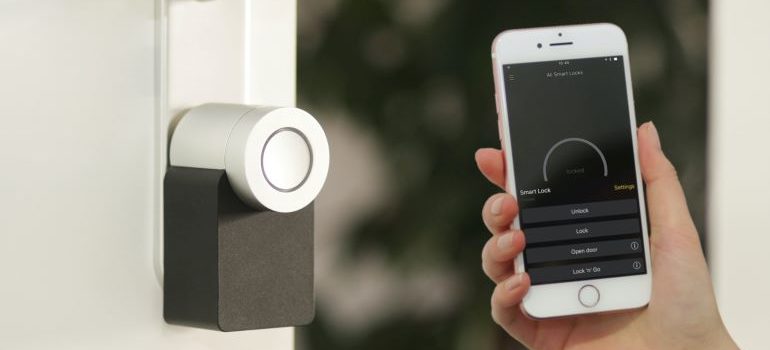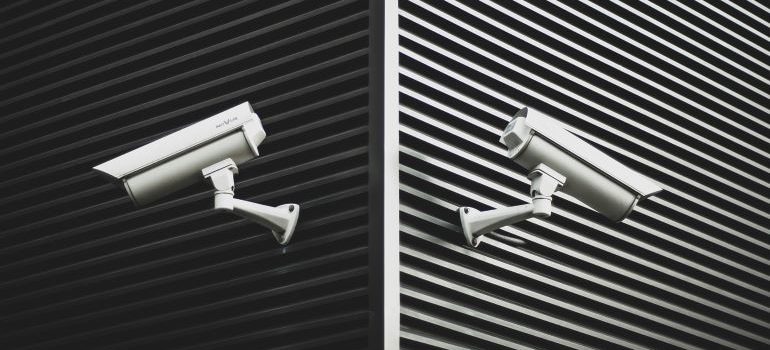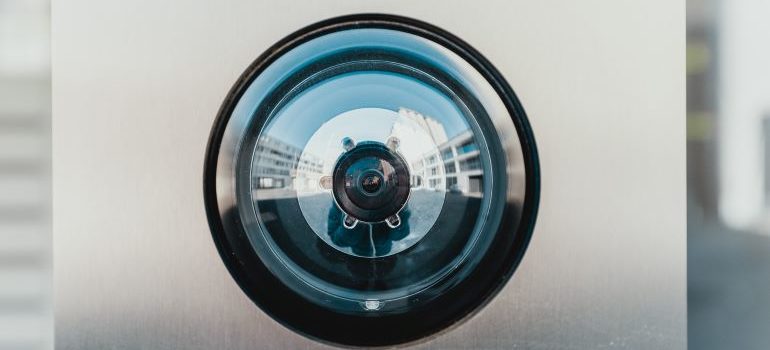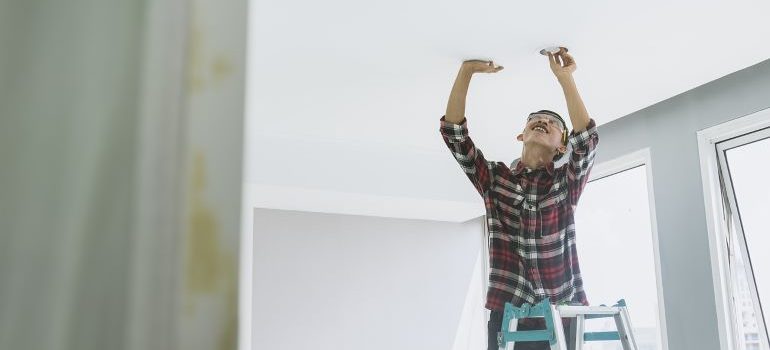Our Premium Selection of Top Home Security Companies
Protect your household and sleep with the comfort of knowing that you have top-rated home security.
At Consumer Opinion Guide, we know that choosing a home security system is a very responsible process. This definitely isn't a decision that you will want to make without prior research. Therefore, it will be our pleasure to help you pick the best and the safest option for your home and family. We will provide you with all the information you might require to make the best choice, by educating you on all the various options available.
Over 0 people chose this site this week
SimpliSafe’s wide range of high-tech cameras and sensors protect your whole home 24/7 from break-ins, fires, floods, and more. Products are wireless, easy to install, and with a huge range. A 24/7 monitoring center is always available, ready to alert the police in case of an emergency.
Pros
- No contract required
-
Cheap monthly fees & affordable equipment
- Easy to install and use
- Connectivity over Wi-Fi and Cellular
Cons
- Equipment purchase required upfront
- Limited camera selection
- Indoor camera doesn’t feature person detection
Vivint Smart Home Alarm Systems helps families live intelligently in safer and smarter homes. They create comprehensive yet simple and fully integrated smart home solutions for affordable prices. These systems allow you to proactively protect your home while keeping you connected to it, no matter where you are.
Pros
- Professional installation and $0 activation
- Feature-rich system that will meet most people’s needs
- 24/7 monitoring & support + swift event response
- One app that manages smart home and security devices
- No long-term contract
- Supports Alexa and Google voice commands
Cons
- Supports a limited number of third-party smart home devices
- Includes home automation integration, which not everyone wants
- Cannot customize alarm sounds
- Higher overall costs
ADT Security Alarm Systems has been on the market for 145 years. They have been building comprehensive home alarm systems, including door/window/motion sensors and mobile apps & cameras in order to provide customers with high-quality guarding services. ADT operates in over 200 locations throughout the U.S. and more than 17,000 professionals make sure that over 6 million customers stay as safe and secure as possible.
Pros
- Most experienced home security company in the U.S.
- Landline and cellular monitoring
- Remote arm and disarm control
- Customizable and flexible alerts, schedules and automation
- Smart home integrations (Alexa, Google Assistant, Z-Wave)
- 6-month money-back guarantee
- Live stream from mobile devices
Cons
- Three-year contract required
- Professional installation + installation fee
- Customer service quality varies by location
- Mobile app isn’t the easiest to use
- Relatively expensive, pricey add-ons and upgrades
Frontpoint Home Security System has been revolutionizing the home security industry for over a decade. Their mission is to keep families safer and more connected in their everyday lives. They create advanced technology that is easy to use. The state-of-the-art video technology knows the difference between actual threats and false alarms and adapts to your schedule.
Pros
- No long-term contract commitments
- Competitive prices & free mobile app
- 30-day risk-free trial and 3-year warranty
- Integrations with Alexa, Siri, and Google Assistant
- Easy DIY installation with full phone support
- A wide selection of useful home security sensors
- Easy to mix and match with other providers
Cons
- No self-monitoring option
- High monitoring fees
- Average smart home abilities
- Not for those with limited DIY skills
Cove combined 30+ years of experience in the home security industry in order to create safety solutions that are quality, easy to install, enjoyable, and economical. They build premium equipment, using top-notch technology which ensures faster dispatch and fewer false alarms. Cove employs highly trained, 24/7 monitoring agents across the country, and with Cove’s TripleTouch™ Alarm Response, your emergency is confirmed with help on the way in 30 seconds.
Pros
- Easy to set up and use, professional installation available
- No contracts, low upfront & monthly costs
- 60-day money-back guarantee
- Lifetime warranty available
-
Speedy response times in testing
- Easy and fair cancellation
- No WiFi or landline needed, just cellular connection
- Alexa and Google Assistant integrations
- RapidSOS and text messaging capabilities
- Two monitoring plans: 24/7 alarm and environmental monitoring + robust feature set
- High-resolution video stored in the cloud or a memory card.
Cons
- New to the market, short track record
- Limited smart home integration
- No doorbell camera
- No self-monitoring option
- Remote control from the mobile app costs $25 a month
What is the most important and valuable thing a man has in life? It’s his or her family. Therefore, it’s only natural that you will want to protect your family members at all times and during different events. That’s why investing in a good home security system ought to be one of your top priorities, as it’s the only way to ensure your house, as well as everyone in it, stays protected at all times. But choosing among home security systems available on the market is a daunting task, as there is a huge variety. To make the best choice, you need to understand the options as well as the companies that provide home security.
What are the elements of a typical home security system?

Nowadays, we are truly blessed with all the technological advancements that have been made. A typical home security system is an advanced mix of sophisticated hardware that will detect intruders and monitoring services that will trigger calls to authorities. With such a system in place, most people feel completely protected – and rightfully so. After all, can you put a price on those eight hours of peaceful sleep at night? We didn’t think so. While every home security system company will include different elements into their offer, some of the common ones you can expect to encounter are:
- Security cameras – a staple in every good home security system.
- Motion detectors and door and window sensors – they alert you when the sensors detect movement inside your home.
- Smoke detectors, flood sensors, temperature sensors – they warn you about threats that aren’t related to intruders.
- Glass break sensor – sends an alert as soon as it detects shattered glass.
- Control panel – the very core of the system which connects all of the devices.
As you can see, a good security system can cover you in a lot of different ways. That’s why we always claim that investing in a home security system will pay off in more ways than one. Hopefully, your security systems will never detect any threats and you will be able to go on with your peaceful life. However, if the worst were to happen, you would be able to get the help you need and get it fast. In most cases, simply having an apartment security system will deter many threats that would otherwise present themselves. The fact of the matter is that potential thieves, vandals, and other miscreants will avoid places with top-notch security, as they pose a greater risk.
Recommended Home Security Companies
Choosing a home security system – what to pay attention to?
With so many different home security system companies, opting for one won’t be so easy. The truth is that some people simply don’t feel like going through all the factors that you have to consider. We won’t tell you why it’s important to consider them – we’ll just tell you what to pay attention to if you want to choose the best option for your family.
The installation manner
Are you the kind of person that loves DIY projects? Well, if you are, you might have a chance to show your skills during security system installation. Some companies will let you choose between professional installation and DIY installation. Others won’t give you the option of choosing one over the other. It goes without saying that there are both pros and cons of both of these options. If you can’t see yourself installing your own security system, you will not choose a company that only offers a DIY option – and vice versa. Just bear in mind that professional installation will cost a fee, but that’s really not something to worry about considering what you are getting in return.
The cost
The times are tough, so it’s only natural that you will be trying to score the best deal. However, you know that your home security system isn’t something you should try to save money on. That’s why it’s important to compare the prices of a few companies and try to estimate which services and pieces of equipment you will be getting for your money. Be extra mindful of the hidden fees, such as reinstallation fees. Always read the fine print before signing the contract, as there isn’t such a thing as being too safe.
The monitoring options
The monitoring process makes up a big part of your home’s security. You don’t need us to tell you that there’s a huge difference between professional monitoring and the kind of monitoring that you do by yourself. Once again, everything depends on your personal preferences. However, one can’t deny that there are many upsides to professional monitoring. The opinion of our team is that it’s always better to leave the safety of your home to professionals.
With professional monitoring, you will get 24/7 protection from experts who will be alerted as soon as an alarm goes off. On the other hand, with DIY monitoring, you will be the one who will be in charge of calling the police or ambulance in case of an emergency. That’s too much responsibility for some people to bear, so think really well which one of these options you prefer.
Smart home security systems
With the advent of the Internet, smart security systems are, perhaps, the best option for a modern homeowner. The Internet has made it extremely easy to set up a fully smart home, where you can control most of the appliances and systems remotely. With but a few taps on a smartphone app, you can control lights, lawnmowers, vacuums, as well as wireless home security systems. Smart security systems offer a great degree of customization and are available both in DIY options and full professional setups.

Depending on what is it that you require, you can create a system that you monitor on your own, or pay a subscription fee to one of the home security system companies. If you choose the latter, you will have access to 24/7 professional surveillance, which will notify local police and fire departments immediately after any corresponding alarm is triggered. Or you can choose to opt for on-demand monitoring services if you are planning a vacation.
The more services you require from home security providers, the more you can expect to pay. A dedicated security system can be quite an investment, after all. However, there are options that will let you monitor your home on your own by using your phone or tablet. These options usually include indoor and outdoor security cameras, smart locks, motion sensors, as well as video doorbells.
Smart systems streamline home automation and security
The way smart home security systems operate is by connecting to your Wi-Fi network to control any security devices you might have. You can access them by using an app, usually via a smartphone or a tablet. Most of the entry-level smart home security options include window and door sensors, alongside a motion detector and a dedicated hub. These devices communicate with each other by utilizing one or more wireless protocols.
The most common protocols are Z-Wave, Zigbee, and Wi-Fi. You can also opt for a proprietary mesh network. By investing in extra sensors, you can provide coverage for the entire house and create a comprehensive security system that includes surveillance cameras, sirens, lights, water sensors, garage door openers, etc. The possibilities are practically endless, and you can customize the system to your needs.
Wireless protocols
There is one downside to smart systems, though. Unfortunately, not all devices operate with the same wireless standard. The reason for this is that the devices themselves differ in power requirements, signal range, size, as well as price. This makes it all but impossible to settle on a single wireless standard. A prime example of this is that smaller components (window and door sensors) are typically using Z-Wave or Zigbee wireless technology. They do not require that much power and operate in a mesh topology that helps extend the range of networked devices. They do not require the bandwidth that Wi-Fie provides.
On the other side, security cameras do use Wi-Fi for smooth video streaming and can be connected directly to your home network. Lastly, any Z-wave and Zigbee devices utilize AES 128 encryption and operate in a closed system with a dedicated hub, making them much more secure than any Wi-Fi device.
With all that being said, even if you opt for home security without a monthly fee, any smart security system worth its proverbial salt offers components that work together seamlessly by using a custom ruleset. An example of this is a rule that lets you have lights turn on whenever any motion is detected, doors opening when a smoke alarm goes off, and cameras starting to record whenever a sensor triggers.
Some smart home security monitoring companies offer cloud storage, while others allow you to store videos locally. The latter is usually implemented in DIY solutions on a budget but care needs to be taken not to overwrite any videos you may have a need of at a later date. On the other hand, cloud storage offers an easy way to store and access your videos, but it usually comes with a hefty subscription tag.
DIY smart home security systems

Most customers choose to go with this variant, as it is much cheaper than the full-blown professional solution. With the DIY option, you can save a considerable amount of money on subscription fees and installation charges. While a DIY system might not be the best home security system on the market, the affordability and ease of use are not to be understated. Most of these systems are rather easy to install, being sold as security kits that are customizable toward your needs. You can always order additional components after you get to test the system out. Most often, you will be able to pair these devices with the ones that you have in a matter of minutes.
The basic, entry-level, DIY security system usually supports only one or two wireless protocols, as well as offering a somewhat limited selection of add-ons. More expensive DIY solutions support multiple protocols and have increased compatibility across the board. The fact of the matter is that the best home security inevitably comes with a high price tag. Furthermore, you have the option to choose between a self-monitored system and professionally monitored home security systems. The choice usually comes down to your needs and your budget.
Professional smart home security systems
The main difference between DIY systems and top home security systems is the fact that the latter utilizes wireless components that require professional installation. These systems have a considerably higher price tag as a result, and may even require you to sign a 24/7 monitoring contract. These contracts usually last for several years and include a large termination fee if you break them. But if you do choose that option, you can expect touch-screen hubs that contain Z-Wave, Wi-Fi, Zigbee, as well as RF radios, allowing them to control and communicate with just about any security component. These components include glass break detectors, window sensors, motion and water detectors, thermostats, light switches, as well as many other home automation devices.
When you install one of the top-rated home security systems that are professionally monitored, you can expect contact from an agent via a two-way control panel whenever an intrusion or smoke alarm is triggered. If you are unavailable, the agent then contacts 911 and dispatches an emergency response team.
While this might not be the most affordable home security option, it is definitely the most convenient one. You will not need to lift a finger at any point in the installation process. All you need to do is place an order and wait for the technician to arrive, set everything up, and explain the workings of the system to you. Do note, however, that in some areas you might be required to file a permit to have a professional security system installed in your home.
Voice control
Almost every one of the latest wireless home security systems provides support for voice control. You can utilize Google’s Assistant, Amazon’s Alexa, and in select cases even Apple’s Siri. With a simple voice command, you will be able to open your garage, change thermostat settings, as well as arm and disarm the security system altogether. Your apartment security system can also offer support to applets that use IFTTT (if this then that) technology. This technology uses triggers from compatible devices and services and creates a corresponding action. An example of this is turning on the air conditioning as soon as you open your garage doors.
DIY security systems
While you may think that a DIY security system is a “substitute” for a full-blown professional security system, that is actually not the case. These days, DIY systems offer a plethora of options that allow you to customize the system to your exact needs. These systems have all the “bells and whistles” of a professionally-installed system, but the difference is that you need to install them on your own.
You will have all the necessary sensors, cameras, and alarms, as well as hardware that will detect the opening of doors and windows, unusual movement, fire, as well as any other concerns you might have. DIY security systems come in two options, monitored and unmonitored, much the same as professional systems. In other words, you can have alerts pushed to your phone or leave the monitoring to a professional security company.
Installation
Since opting for a professionally-installed security system comes with a rather hefty price tag (around $300 for smaller systems, up to $2000 for most complex ones), installing everything on your own offers an option for affordable home security. While you can get some of the top-rated security companies to waive the installation cost, this usually comes with the need to sign a lengthy monitoring contract. In most cases, if you are looking to save some money, pulling a screwdriver, stepladder, and a hammer out of your tool closet and installing the system on your own is the best option.
To make things easier for you, most sensors nowadays come with a repositionable adhesive in the back, making them quite easy to install. You will also get all the instructions included with the components, including where and how to place them. Furthermore, your provider will have the option of either online support, phone support, or both. To make the most out of your system, it is advisable to look up as many home security systems reviews as you can. That will provide you with all the information required to make the best choice.
When connecting your system to your home, you will usually need a phone app in order to connect the entire thing to Wi-Fi. Of course, you will have instructions on how to do it, as mentioned previously.
Monitoring options
Traditionally, installing a home security system meant that you needed to subscribe to a yearly or a monthly contract with a monitoring company. In that case, you get the benefit of trained professionals keeping an eye on your system and contacting you and law enforcement agencies in case of any alarms. In most cases, these systems come with a smartphone app that alerts you, as well as allows the monitoring company to contact you if any problems arise.

But with DIY systems, you have the alternative to forgo the contract and monitor the system yourself. This means that all alerts of potential problems are pushed straight to your smartphone (or will provide an audible alarm) instead of a professional monitoring company. When that happens, you will need to call the law enforcement on your own, or simply hit a “panic” button that is present on most apps. You also have the option of dismissing the notification if you know that your home is safe and sound. While most unmonitored systems are rather simple, such as a doorbell camera, some can be very complex and elaborate. You can install glass-break sensors, a multitude of cameras and locks, as well as door alarms. It is all up to you to decide how secure you want your home to be.
Customizability
The greatest benefit of a DIY security system is the ability to customize it to your own needs. For example, let’s say that your main security issue is car theft. In that case, all you may require from your security system is a motion sensor light and a simple camera that is focused on your driveway. And if your primary concern is your teenager “escaping” the house when they are grounded, simply install notifications when any windows or doors open. Or you can opt for a complex security system where all the doors and windows have alarms, as well as having cameras that immediately record when anyone gets in their field of vision.
Bottom line is, you can customize the system and make it as simple or as elaborate as you require it to be. You are not held back by any standards, you simply install what you need and where you need it.
Preprogrammed equipment
However, this vast array of options is simply too much for most homeowners to handle on their own. While it is great to be given so many choices when it comes to selecting the components, connecting them to control panel and Wi-FI, the reality is that it can all get quite complicated real fast. That is why most DIY security system providers will provide you with a preprogrammed system. This will alleviate much of the stress that comes with designing the system, as you will get a simple box that has everything that you might require. All of the equipment will be preprogrammed, with the standard suite of options.
Usually, you get the main hub, a few glass-break monitors, alarms for your doors and windows, as well as a security camera or two, and a few smart-home components. All of the components will be already connected to the main hub, leaving you with only the installation of the cameras and sensors. After you do so, all that is left is to sign into Wi-Fi from the hub itself and everything will “click” into place. The cameras and sensors will automatically connect without any input required from you. And you are free to customize the system and fiddle with it if that is your inclination.
Convenient packages
While there are numerous components that you can add to your security system, the reality is that you don’t need all of them. For example, if your building already has a centralized smoke detector, you don’t need to add another one to your home. And if you have nothing worth stealing in your shed, you might not want to install an additional sensor there. Consider your needs before you start shopping for components, and you can find yourself saving quite a bit of money on your DIY system.
To make it easier for you, most security system providers offer several packages that contain different levels of coverage. This makes it easier for the customer to make a simple purchase, with the option of adding more components at a later date. But more importantly, these packages are much easier to install and offer a streamlined process.
Why choose a DIY system instead of a professional one?
Aside from the cost, there are numerous reasons why you might want to go the DIY route for your security system. First, these systems are ideal for many renters, as well as homeowners, due to the fact that they save you the hassle of scheduling installers to come to your home. And perhaps you don’t want anyone to intrude on your privacy, even if they are professionals. Furthermore, the customizability that DIY systems offer is much greater than pre-built professional home security systems. You also get the flexibility to choose between a monitored and unmonitored solution, something that you often do not get with professional systems.

You can also transfer the entire system from one apartment to another in case of relocations, and you will already know how to install it. With professional systems, you will first have to get the company to remove the old system and install it in a new location afterward, further increasing the cost.
With all that being said, there is the fact that some people are simply not comfortable with a DIY installation. Or they might not even have the technical expertise to connect the equipment to Wi-Fi. In those cases, a professional system might be a better solution. But if you are at least a little bit tech-savvy, and do not mind doing a bit of installation work, DIY security systems provide a cost-effective, customizable, option for all your home security needs. At the very least, it is worth spending some time figuring out if a DIY system is the right match for your situation.
Keeping it simple – Security cameras
But if you don’t want to deal with home security providers, or even install the system on your own, you can always opt for a simple security camera. It can get the job done for far less money than other home security options. Most security cameras simply connect to your home’s existing Wi-Fi network, as well as provide you with the ability to control it from a smartphone or a tablet. Furthermore, most security cameras have built-in motion security and sound sensors that can send an email and push notifications once triggered. Of course, you can tweak these settings to prevent any activity from passing cars or stray pets. You can even create a custom schedule that turns the sensors on and off in select hours.
If you want to invest in a more expensive camera, you will be able to have it interact with smart lighting and thermostat systems. The humidity and temperature sensors on the camera will allow it to react to changes and drive your other systems. But if you want to save some money on the purchase, try to get a camera that has an SD card slot. This will provide you with the ability to record video once a particular sound or motion triggers the sensor. However, you will want to keep an eye out for the storage on the card, as it may automatically delete the previous recordings to make space for the new ones. Some cameras will even stop recording if there is no space anymore.
While it may not be the best protection available to you, oftentimes a simple security camera is more than enough to deter potential burglars. After all, why go through the trouble of breaking into a place that is protected with even a camera when there are so many other places that don’t have one. But if your home provides an enticing “target” for criminal activities, you may want to invest in additional protection.
Your protection is worthy of your time
We know that our lives are super busy nowadays. But you need to make time for those things that really matter, no matter how hectic your schedule might be. So when choosing a home security system or buying a medical alert device, you need to give some of your time and effort to the process. Think about it – your home security system isn’t something you will buy every day. On the other hand, it’s something that’s going to come with huge benefits for your family. After all, what can be more beneficial than knowing your loved ones are safe? Therefore, don’t hesitate to look through all of your options and pick the best one for your property and your situation.
Over 0 people chose this site this week
SimpliSafe’s wide range of high-tech cameras and sensors protect your whole home 24/7 from break-ins, fires, floods, and more. Products are wireless, easy to install, and with a huge range. A 24/7 monitoring center is always available, ready to alert the police in case of an emergency.
Pros
- No contract required
-
Cheap monthly fees & affordable equipment
- Easy to install and use
- Connectivity over Wi-Fi and Cellular
Cons
- Equipment purchase required upfront
- Limited camera selection
- Indoor camera doesn’t feature person detection




